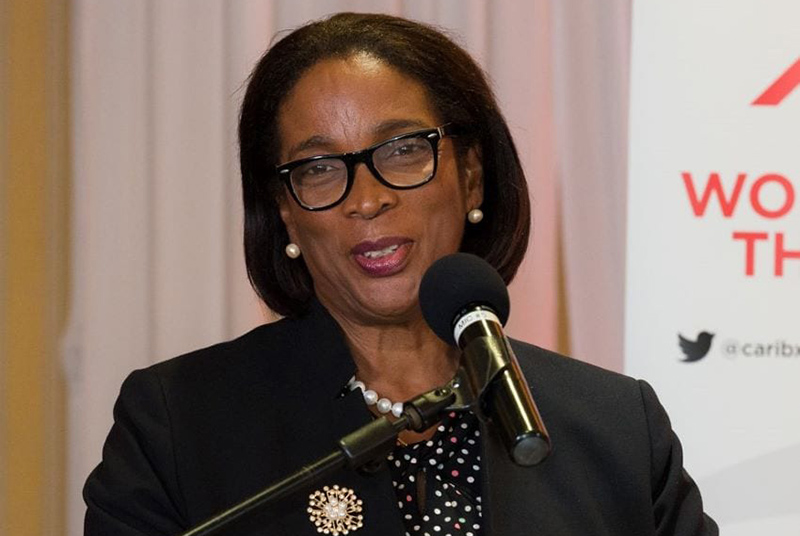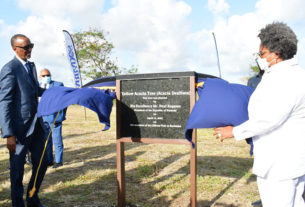BY SHEENA FORDE-CRAIGG | MAY 4, 2022
Minister of State in the Ministry of Foreign Trade, Sandra Husbands. (FP)
The Post-Cotonou Agreement between the European Union (EU) and the Organisation of African, Caribbean and Pacific States (OACPS), formerly known as the ACP Group of States, could be one of the most diverse agreements, but it must take into account the vulnerabilities that the OACPS faces.
Minister of State in the Ministry of Foreign Trade, Sandra Husbands, stated this today, during the Sixth Meeting of the CARIFORUM-EU Consultative Committee, held at the Hilton Barbados Resort.
Noting that the fragile economies of the region have become even more vulnerable within the last two years, because they had to grapple with the effects of the COVID-19 pandemic, climate change, volcanic eruptions and now the conflict between Russia and Ukraine, Minister Husbands pointed out that the Post-Cotonou Agreement and the benefits to be derived could aid the Caribbean in building back its economies, but it should take into account the region’s vulnerabilities.
“The vulnerability of these countries is not taken into consideration when we seek to organise the systems or build agreements. There is, therefore, a need for a much fairer index, which will incorporate vulnerability as one of the elements that must be considered when evaluating the needs of countries. All of this has very serious implications for the continued prosperity and development of our countries,” Ms. Husbands stated.
She added: “We have endured many crises before but the prevailing headwinds seem really to constitute the perfect storm, which could seriously impair the development of our countries, and therefore, a review of what we are doing in relation to the Economic Partnership Agreement; what we’re doing in relation to the new Post-Cotonou must be reflected in its terms and conditions.
“And the way in which we go about implementing it, must reflect those realities and take into account maybe adjustments and changes that will be required to allow it to continue to do its primary objective, which is to help with the economic and social development of this region.”
The Minister also commended the EU for some of its existing programmes, including the Neighbourhood Development and International Cooperation Instrument, which was described as a “prime” example of the developmental cooperation received from the EU, and the Green Deals partnership between the EU and the Caribbean, which assists in helping to mitigate climate change.
Minister Husbands stressed: “The economic recovery of our nations; the continued cooperation between the OACPS and the EU member states is going to be very important going forward, and therefore, as member states, we must continue to work together to build out other areas within the Post-Cotonou Agreement, as well as take better advantage of the market and trade opportunities under the EPA to support our economies in this environment of global challenges.”
She expressed the hope that the CARIFORUM-EU Consultative Committee meeting would be a productive one, as all parties seek to move towards finalising the Post-Cotonou Agreement.
Those negotiations started in September 2018, in the margins of the United Nations General Assembly in New York, and are aimed at succeeding the Cotonou Agreement and adapting the EU-OACPS relations to the new realities.




